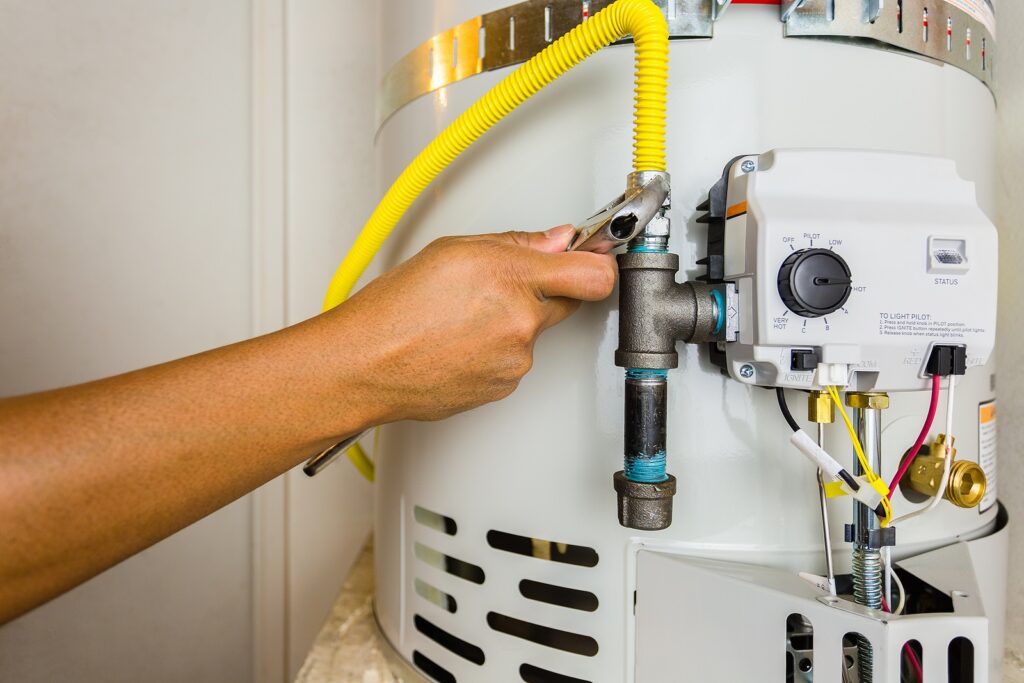Navigating the Boiler Installation Process: A Comprehensive Guide
Curious about installing a boiler in your home? This comprehensive guide will walk you through the entire process, from selecting the right type of boiler to finding a qualified installer. We’ll cover everything you need to know to ensure a successful and efficient installation.
For many homeowners, the health and functionality of their boiler is of paramount concern. A well-maintained and efficient boiler doesn’t just provide warmth; it’s an essential part of a home’s energy system.
When the time comes to replace or install a new boiler, it can be a daunting task, fraught with technical jargon and potential pitfalls. This comprehensive guide aims to demystify the process, taking you from recognizing the need for a new boiler to post-installation maintenance, ensuring that you make the best choice for your home and your family.

Signs You Need a New Boiler
Before you tackle the installation process, it’s crucial to understand when your existing boiler might be on its last legs. Look out for the following signs that indicate a replacement might be in order:
- Age of the Boiler: The average lifespan of a boiler is around 10-15 years. If your boiler is significantly older, consider a new one.
- Frequent Breakdowns: If your boiler requires more and more repairs, it could be a sign of deteriorating performance.
- Increased Energy Bills: Rising energy costs can be attributed to an inefficient boiler. Newer models are designed with energy efficiency in mind.
- Uneven Heating or Lack Thereof: If some rooms are warmer than others or you lack heat, the boiler’s performance is likely to blame.
- Strange Noises: Gurgling, banging, or whistling may indicate boiler problems, such as limescale buildup or a failing pump, that warrants a replacement.
Choosing the Right Boiler
Boilers come in various types, each with its advantages and considerations:
Combi Boilers
Combination boilers, or combi boilers, are popular for smaller homes because they are compact and can provide heating and hot water on demand without a water tank.
System Boilers
System boilers work on the principle of stored hot water. They require a cylinder for hot water storage, but the major heating and hot water system components are built into the boiler itself, thereby eliminating the need for a tank in the loft.
Heat-Only Boilers
Also known as regular, conventional, or traditional boilers, these are best suited to homes that already have a conventional heating and hot water system linked to a separate hot water cylinder.
In addition to type, factors such as boiler size, the number of bathrooms in the house, and the power output required to meet demand should all be considered before making a selection.
Preparing for Installation
Here’s what you need to do in the run-up to your installation day:
- Consult with Professionals: It’s important to have a professional assess your home and heating needs. They can recommend the type and size of boiler that will work best for you.
- Budgeting: New boiler installations can be costly, so start planning and budgeting early.
- Clearing Space: Ensure there is enough space for your new boiler and the required components. Make any necessary arrangements to clear out the old space.
- Health and Safety: If your boiler is in a confined space, ensure that there is adequate ventilation to prevent carbon monoxide buildup.
The Installation Process
On the day of installation, you can expect the following steps:
Initial Assessment
The boiler installer will arrive at your home and assess the work that needs to be done. This may include checking the condition of other heating system components, such as radiators and pipes.
Removal of Old Boiler
Your old boiler will be safely disconnected, removed from its mount, and disposed of properly.
Installation of New Boiler
The new boiler will be installed according to the manufacturer’s instructions and industry best practices, with a focus on safety and efficiency.
Connection to the Heating System
The installer will connect the new boiler to the existing pipes and heating system. If you have a new type of boiler installed, such as a system boiler with a hot water cylinder, this may involve additional work.
Testing
Once the installation is complete, the installer will run a series of tests to ensure that the boiler is working correctly. This includes checking for leaks, gas pressure, and the performance of the heating and hot water systems.
Commissioning
The boiler will be commissioned, which involves registering the new boiler with the manufacturer. This is an important step in the installation process and may affect the warranty of your new boiler if not completed.
Post-Installation Maintenance
Just because your new boiler is installed doesn’t mean your job is over. Regular maintenance is crucial for the longevity and efficiency of your new heating system. Here are some post-installation steps you should take:
- Close Out the Job: Review the installation with the contractor to ensure that everything was performed to your satisfaction. Get any warranties or guarantees in writing.
- Get to Know Your New Boiler: The contractor should walk you through the operation of your new boiler and explain any maintenance procedures you need to be aware of.
- Schedule Regular Servicing: Annual servicing by a Gas Safe Registered engineer will keep your warranty valid and your boiler in top condition.
- Maintain a Service Log: Record all service visits and minor maintenance to build a comprehensive history of your boiler’s care.
The installation of a new boiler is an investment in your home’s comfort and energy efficiency. By recognizing the signs that it’s time for a replacement, choosing the right type, adequately preparing your home, understanding the installation process, and committing to post-installation maintenance, you’re ensuring that your home will be warm and your hot water plentiful for years to come.
Don’t take chances with DIY installations—always use a professional. Your safety and the warranty of your new appliance are at stake. Whether you’re ready to buy a brand-new boiler or are just starting your research, remember that a warm home is a happy home. If you’re unsure about any step in the process, it’s okay to ask for help. Professional installers can guide you through the selection and installation processes, ensuring that you make an informed decision without any unnecessary stress.
Finally, take the first step towards a better home heating solution immediately. Contact a qualified boiler installation service and start discussing your options today. Your home and your family will thank you for the investment in their well-being.
We Are The Best Choice For Boiler Installation
Here at Staggs Plumbing, we pride ourselves on providing top-quality boiler installation services. Our team of highly skilled and Gas Safe Registered engineers will ensure that your new boiler is installed safely, efficiently, and with the highest level of professionalism.
Our vast industry experience allows us to offer expert advice on selecting the right boiler for your home’s needs and budget. We understand that every home is unique, and we will work closely with you to find the perfect solution for your specific requirements. All you have to do is give our team a call at 972-833-8660, sit back, and relax while we take care of everything else.


